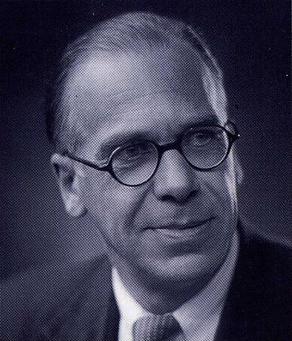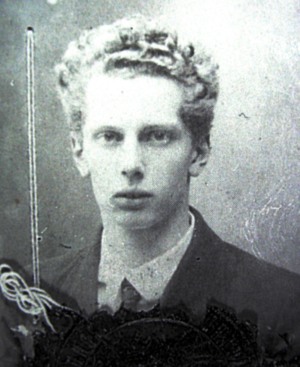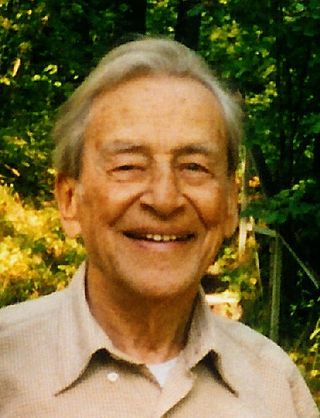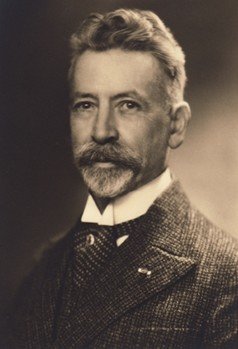This article includes a list of general references, but it lacks sufficient corresponding inline citations .(February 2020) |
Thomas Pasatieri (born October 20, 1945) is an American opera composer.
This article includes a list of general references, but it lacks sufficient corresponding inline citations .(February 2020) |
Thomas Pasatieri (born October 20, 1945) is an American opera composer.
Pasatieri was born in New York City, United States. He began composing at age 10 and, as a teenager, studied with Nadia Boulanger, [1] although his main teachers were Vittorio Giannini and Vincent Persichetti. [2] He entered the Juilliard School at age 16 and eventually became the school's first recipient of a doctoral degree.
Pasatieri has taught composition at the Juilliard School, the Manhattan School of Music, and the Cincinnati College-Conservatory of Music. From 1980 through 1984, he held the post of artistic director at Atlanta Opera.
He has composed 24 operas, the best known of which is The Seagull , composed in 1972. Two of his operas were premiered in 2007: Frau Margot by the Fort Worth Opera and The Hotel Casablanca in San Francisco. Other popular operas include La Divina and Signor Deluso .
In 1984, Pasatieri moved to Los Angeles, California, where he formed his film music production company, Topaz Productions. His film orchestrations can be heard in Billy Bathgate , Road to Perdition , American Beauty , The Little Mermaid , The Shawshank Redemption , Fried Green Tomatoes , Legends of the Fall , Thomas Newman's Angels in America and Scent of a Woman , among many others. In 2003, Pasatieri returned to New York to continue his concert and opera career.

Robert Eugene Ward was an American composer who is best remembered for his opera The Crucible (1961) after the 1953 play of the same name by Arthur Miller. He was awarded the Pulitzer Prize for Music for that opera in 1962.

Vincent Ludwig Persichetti was an American composer, teacher, and pianist. An important musical educator and writer, he was known for his integration of various new ideas in musical composition into his own work and teaching, as well as for training many noted composers in composition at the Juilliard School.
Lowell Liebermann is an American composer, pianist and conductor.
Vittorio Giannini was an American neoromantic composer of operas, songs, symphonies, and band works.

William Alwyn, was an English composer, conductor, and music teacher.

Boris Blacher was a German composer and librettist.
Nicolas Oreste Flagello was an American composer and conductor of classical music. He was one of the last American composers to develop a distinctive mode of expression based wholly on the principles and techniques of late romanticism.

Frederick Shepherd Converse, was an American composer of classical music, whose works include four operas and five symphonies.

Grigory Samuilovich Frid, also known as Grigori Fried, was a Russian composer of music written in many different genres, including chamber opera.
Jack Hamilton Beeson was an American composer. He was known particularly for his operas, the best known of which are Lizzie Borden, Hello Out There!, and The Sweet Bye and Bye.
Stanley Walker Hollingsworth was an American composer and teacher. He was a student of composer Darius Milhaud from 1944–46, and of Gian Carlo Menotti from 1948–50. As a composer he is probably best known for his operatic trilogy of children's stories: "The Mother", "The Selfish Giant", and "Harrison Loved his Umbrella".

Julianus Marie August De Boeck was a Belgian composer, organist and music pedagogue. He was the son of organist and director Florentinus (Flor) De Boeck (1826-1892)

Michael Jeffrey Shapiro is an American composer, conductor, and author.
Erwin Dressel was a German composer and pianist.
Valentino Bucchi was an Italian composer.
John Musto is an American composer and pianist. As a composer, he is active in opera, orchestral and chamber music, song, vocal ensemble, and solo piano works. As a pianist, he performs frequently as a soloist, alone and with orchestra, as a chamber musician, and with singers.

Signor Deluso is an opera buffa in one act composed by Thomas Pasatieri. The English-language libretto, written by the composer, is loosely based on Molière's 1660 comedy Sganarelle, ou Le Cocu imaginaire. It premiered on 27 July 1974 at the Madeira School auditorium in McLean, Virginia performed by the Wolf Trap Opera Company. It has been subsequently performed many times by various small opera companies in the United States and Europe. In a review of a 2008 revival in Washington, D.C., Anne Midgette described it as "an exuberant sendup of over-the-top comic opera plots, filled with effusive lovers leaping with alacrity to wrong conclusions in floods of extreme vocalism."
Thomas Pasatieri (b. 1945) ... Before entering the Juilliard School, Pasatieri studied with Nadia Boulanger. At Juilliard he worked with Vittorio Giannini...
In 1961, on a scholarship from the Juilliard School, Pasatieri began formal studies under Vincent Persichetti and Vittorio Giannini.